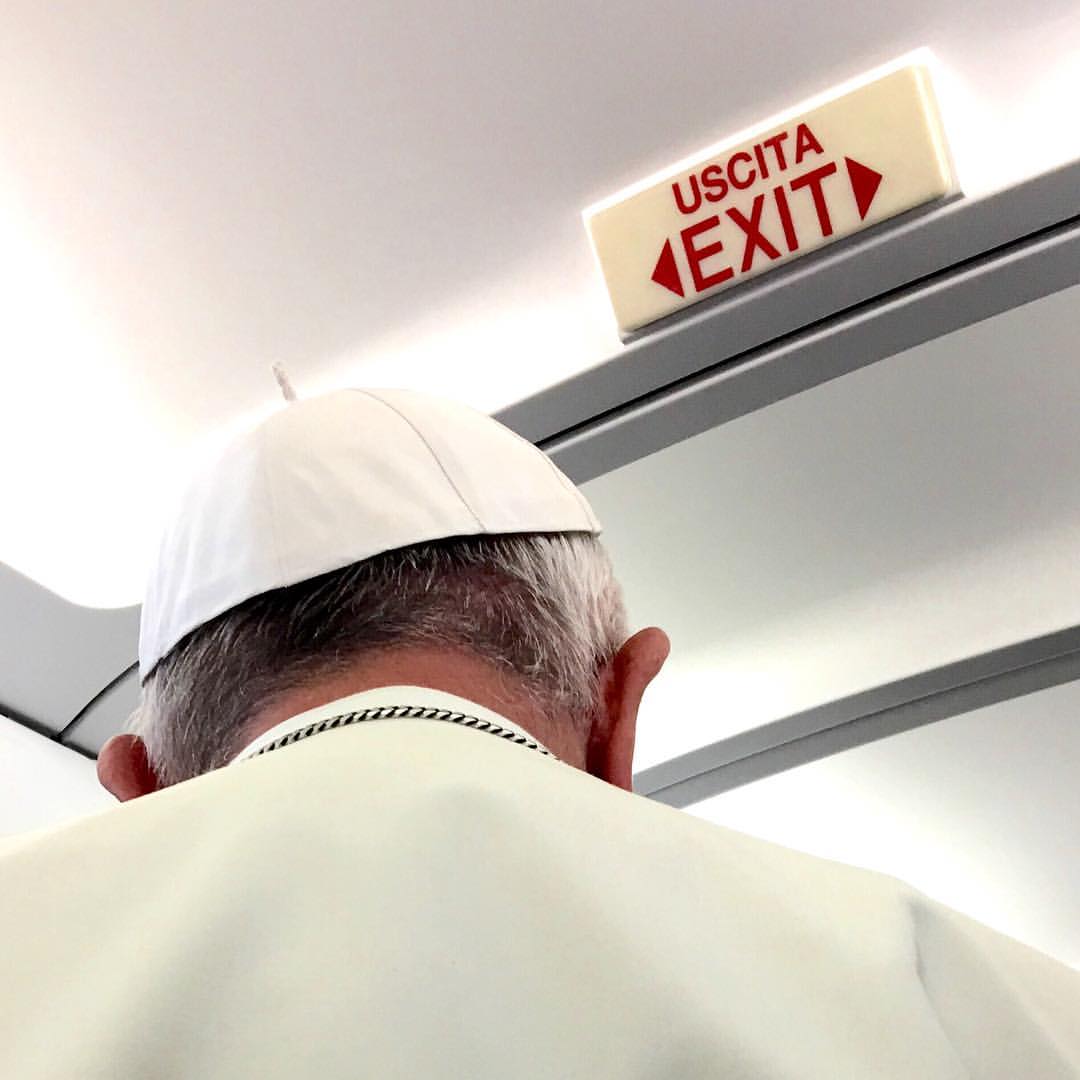Pope Francis received the prestigious Charlemagne Prize May 6, 2016. In his discourse he cited the great Jesuit theologian Erich Przywara, teacher of Hans Urs von Balthasar and author of the essay Idee Europa [The Idea of Europe] [1] Citing L’idea di Europa, that he knows well, Francis reveals his conviction, which was that of the Jesuit theologian: we are at the end of the Constantinian epoch and the experiment of Charlemagne. It is interesting, therefore, that the Pope quotes Przywara precisely in this Carolinian context.
«Christendom», that is that process started with Constantine in which he implements an organic bond between culture, politics, institutions and the Church, is concluding. Przywara — together with the Austrian historian Friedrich Heer [2] — is convinced that Europe was born and raised in relationship and in contraposition with the Sacrum imperium, that has its own roots in the attempt by Charlemagne to organize the West as a totalitarian state.
This process is evaluated by Heer as «the possibility for the Church to resume the evangelical paths started by Francis of Assisi, Ignatius of Loyola and Teresa of Lisieux, breaking down the barriers that separated her from the poor to whom Christianity—in the theological political conjuncture of the various forms of Christianity—always appeared as an ideological policy —and the guarantee — of the dominant groups». [3] For Heer the end of Christendom does not mean the decline of the West, but rather brings in itself a decisive theological resource in as much as the mission of Charlemagne is at the end. Christ himself resumes the work of conversion. The wall falls that almost up to the present day has impeded the Gospel from reaching the deeper layers of the conscience, from penetrating to the center of the soul. [4]
He thus radically refuses the idea of the realization of the Kingdom of God on earth, that was at the base of the Holy Roman Empire and all similar political and institutional forms, up to the dimension of the political «party». If so understood, in fact, the «chosen people» would enter into an intricate interweaving of religious, institutional and political dimensions that cause them to lose awareness of its universal diakonia and would contraposition them to those who are alienated, to the those who do not belong, that is the «enemy».
The Pope has confirmed his vision citing Przywara a few days after having received the prize, May 9, in an interview with the French daily La Croix. Questioned on why he speaks of the «European identity», the pontiff answers: «We need to speak of roots in the plural because there are so many. In this sense, when I hear talk of the Christian roots of Europe, I sometimes dread the tone, which can seem triumphalist or even vengeful. It then takes on colonialist overtones. John Paul II, however, spoke about it in a tranquil manner. Yes, Europe has Christian roots and it is Christianity’s responsibility to water those roots. But this must be done in a spirit of service as in the washing of the feet. Christianity’s duty to Europe is one of service. As Erich Przywara, the great master of Romano Guardini and Hans Urs von Balthasar, teaches us, Christianity’s contribution to a culture is that of Christ in the washing of the feet. In other words, service and the gift of life. It must not become a colonial enterprise».[5]
With Przywara, Bergolio recognizes — precisely as is affirmed in the Letter to the Hebrews (13:13) — that Christians must «go outside of the camp to bring the outrage of Christ».[6] And the Church must be in exit and never be a closed and excluding entity. She is to follow Christ outside of the wall of the holy city, where he died as an accursed man to be able to gather together the whole of humanity, even those who believed him accursed and abandoned by God (cfr Gal 3:13).
Here arises the idea of the Church as «a field hospital», also evoked in the discourse of the President of the European Council, Tusk. And in fact Francis continues in his discourse affirming that «To the rebirth of a Europe weary, yet still rich in energies and possibilities, the Church can and must play her part». How? Proclaiming the gospel, that «more than ever finds expression in going forth to bind the wounds of humanity with the powerful yet simple presence of Jesus, and his mercy that consoles and encourages».
Here is, therefore, what the task of the Church should be, definitely post-Carolinian: to be in exit, going out and encountering the wounded. This is what Francis is doing, seeking thus to contribute to enlarging the soul of Europe.
[1] Cfr J. L. Narvaja, «La crisi di ogni politica cristiana. Erich Przywara e l’“idea di Europa”», in La Civiltà Cattolica 2016 I 437-448. Cfr also A. Spadaro, «La diplomazia di Francesco. La misericordia come processo politico», in La Civiltà Cattolica 2016 I 209-226, 218-220.
[2] E. Przywara, L’ idea d’Europa. La «crisi» di ogni politica «cristiana», Trapani, Il Pozzo di Giacobbe, 2013, 119. Cfr F. Heer, Aufgang Europas. Eine Studie zu den Zusammenhängen zwischen politischer Religiosität, Frömmigkeitsstil und dem Werden Europas im 12. Jahrhundert, Wien, Europa Verlag, 1949.
[3] F. Mandreoli – J. L. Narvaja, «Introduzione», in E. Przywara, L’ idea d’Europa. La «crisi» di ogni politica «cristiana», Trapani, Il Pozzo di Giacobbe, 2013, 55.
[4] Cfr ivi, 55; G. Zamagni, «“Tra Costantino e Hitler”. L’Europa di Friedrich Heer», in Id., Fine dell’era costantiniana. Retrospettiva genealogica di un concetto critico, Bologna, il Mulino, 2012, 55-57.
[5] G. Goubert – S. Maillard, «Le devoir du christianisme pour l’Europe, c’est le service», in La Croix, 17 maggio 2016.
[6] E. Przywara, L’ idea d’Europa…, cit., 122 s.
